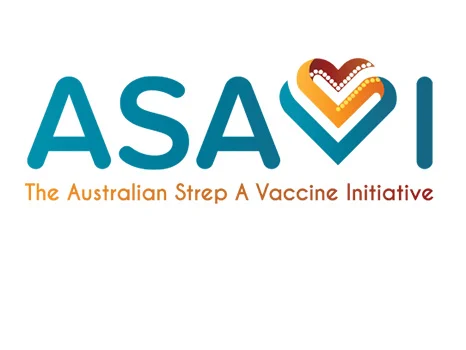Search
Research
Penicillin G concentrations required for prophylaxis against Group A Streptococcus infection evaluated using a hollow fibre model and mathematical modellingAcute rheumatic fever (ARF), an autoimmune reaction to Group A Streptococcus (Streptococcus pyogenes; Strep A) infection, can cause rheumatic heart disease (RHD). New formulations of long-acting penicillins are being developed for secondary prophylaxis of ARF and RHD.

Research
Acute Rheumatic Fever Diagnosis Collaborative Network (ARC)ARC is a global network of collaborators committed to reducing the burden of RHD in our lifetime.

Research
Australian Strep A Vaccine Initiative (ASAVI)The Australian Strep A Vaccine Initiative (ASAVI) is an Australian-led global initiative with the goal of reducing the disease burden caused by Group A Streptococcus (Strep A) infection through effective vaccination.
Research
BPG Formulation Preferences Study: Exploring patient, family and clinician reformulations preferences for BPGThe key objective of this study is to collect data about patient and clinician preferences about reformulations.
Research
Burden of rheumatic heart disease (RHD) and impact of prevention strategies: comprehensive evidence to drive the RHD EndgameThis project will use a multi-jurisdictional linked RHD dataset to establish a baseline burden of RHD in Australia to allow for monitoring the impact of burden over time, and to form the basis of clearly defined targets for the END RHD CRE Endgame Strategy.
Research
Defining target penicillin concentrations for subsequent studies of a reformulated long-acting benzathine penicillin prototypeAims: To determine the minimum inhibitory concentrations of penicillin G against a representative collection of Strep A strains; and to evaluate the impact of penicillin G concentration and size of bacterial inoculum on the prophylactic effect for Strep A strains
Research
Development of a longer acting formulation of Penicillin G for the treatment and prevention of acute rheumatic fever and rheumatic heart diseaseThis project aims to develop a longer acting formulation of penicillin, such that frequency of the injection can be increased up to 3-6 months.
Research
Establishing a Western Australian Congenital and Acquired Heart Disease DatabaseThe main objective of the study is to establish a comprehensive register of congenital and acquired heart disease in WA with accurate re-classification of all cases through Princess Margart Hospital using international diagnostic codes.
Research
Evaluating the genetic contribution to rheumatic heart disease pathogenesis in Australian Aboriginal and Torres Strait Islander communitiesWe are conducting a genetic study to better understand why some people are susceptible to RHD and others are not.
Research
Exploring associations between life course geo-social exposures and rheumatic heart disease in Great BritainThis project aimed to identify the primordial determinants of RHD to inform prevention strategies.
